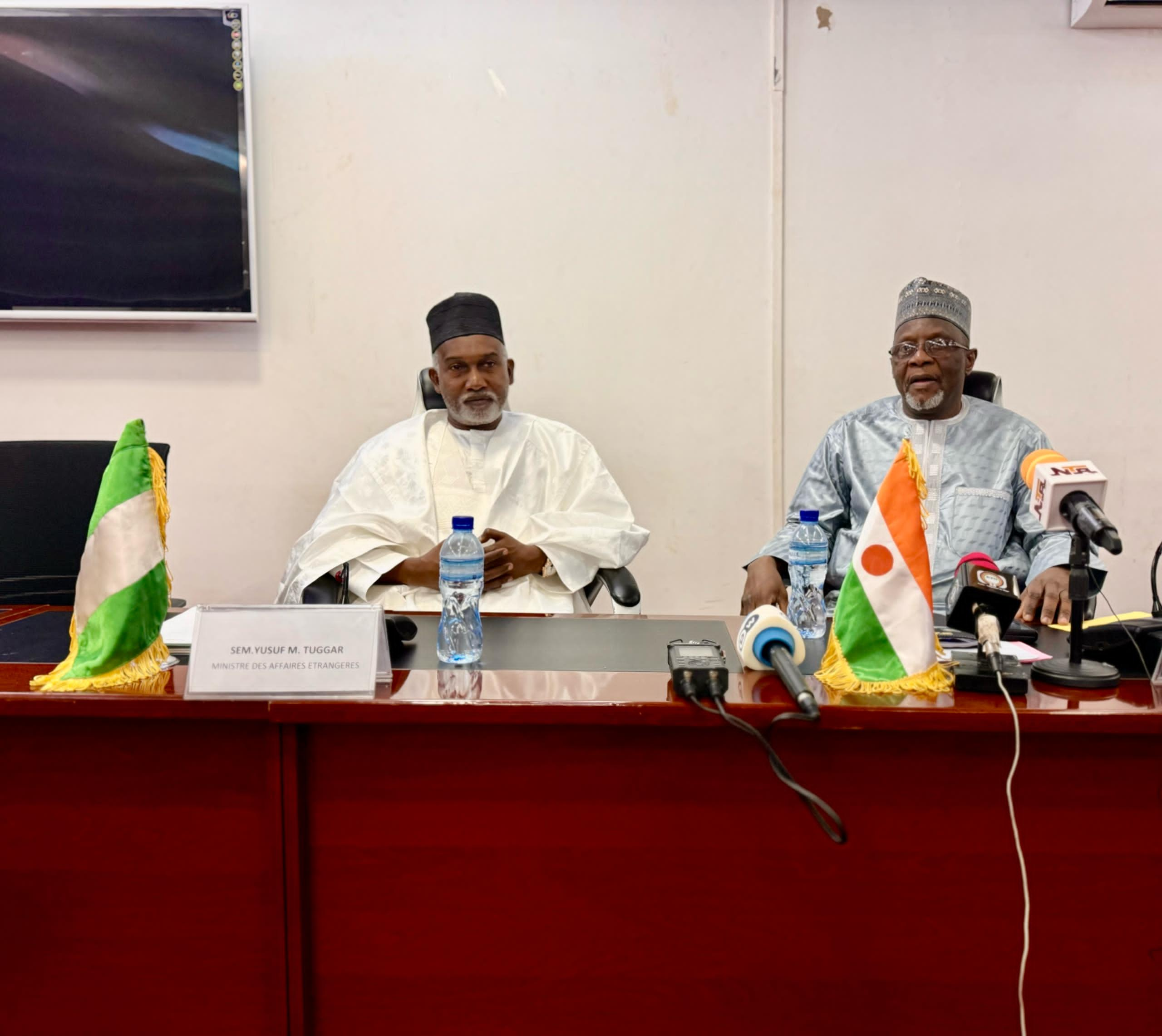Tuggar Leads Diplomatic Delegation to Renew Bilateral Ties with Niger Republic. By Alkasim Abdulkadir

In a renewed spirit of brotherhood and cooperation, Nigeria’s Minister of Foreign Affairs, Ambassador Yusuf Maitama Tuggar, led a high-level diplomatic delegation to the Republic of Niger to reinvigorate bilateral ties and consolidate strategic partnerships between the two nations.
During the landmark meeting, both delegations deliberated on a broad range of mutually beneficial issues aimed at strengthening the age-old relationship that binds the people and governments of Nigeria and Niger. Central to these discussions was the revitalization of the Nigeria-Niger Joint Commission (NNJC), which has historically served as the key framework for bilateral engagement and cooperation.
The talks highlighted the pressing need to deepen economic integration between the two countries, focusing on the activation of cross-border markets, facilitation of trade and energy exchange, and the advancement of critical infrastructure projects. These include the Kano-Katsina-Jibiya-Maradi railway line, the Trans-Saharan Gas Pipeline, the Trans-Saharan Highway, and the Trans-Saharan Fiber Optic project. The ministers also discussed bilateral air services, the easing of tariffs and taxes, desertification control, and the promotion of policies that encourage good neighborliness.
In addition, both countries committed to closer cooperation in areas such as migration, tourism, education, agriculture, livestock farming, and the advancement of information and communication technologies. The parties resolved to follow up on these issues urgently through the mechanisms of the NNJC.
In their joint communique, Ambassador Tuggar and his Nigerien counterpart, H.E. Bakary Yaou Sangaré, acknowledged the enduring ties of fraternity, friendship, and good neighborliness that have defined Nigeria-Niger relations. They reaffirmed their shared commitment to elevating bilateral cooperation to reflect the aspirations of their peoples, particularly in fostering peace, security, and sustainable development.
Security dominated the agenda, with both ministers expressing concern over the persistent terrorist threats along the shared border, which pose significant challenges to regional stability and development. The two sides urged their respective defense ministries to intensify collaboration in tackling these threats and restoring security across affected regions.
The delegations further emphasized the importance of enhancing cooperation across social, political, economic, scientific, and cultural dimensions. They agreed to regularize meetings of the NNJC’s various structures, including expert committees, ministerial councils, and the High Authority, to maintain momentum in their bilateral engagement.
To institutionalize dialogue and coordination, the ministers proposed the establishment of a Joint Consultative Forum that would bring together stakeholders from both countries to identify common challenges and explore new avenues of cooperation for the collective benefit of their citizens.
This renewed diplomatic initiative underscores the shared vision of Nigeria and Niger to build a resilient and prosperous sub-region grounded in cooperation, mutual respect, and strategic partnership.



